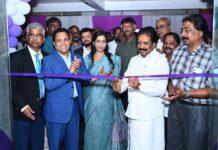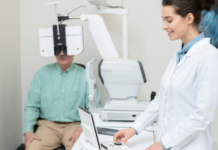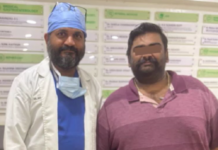New Delhi, October 31, 2016: Taking a huge step towards cancer prevention in India, the Government of India, for the first time has prepared operational guidelines for the screening and management of cancer in the country. Starting from November, the Union Health Ministry has made mandatory screening of cancer for females above the age of 30.
One of the tools that government wants to employ in early detection are annual mammograms. But a population-based screening programme by way of mammography is not a viable option for India since most cancers are detected in the young. So there have been conflicting views about screening mammography as not being the best tool to detect impalpable cancer, besides the expenses of mammography involved and the elaborate set up needed also acts as a hindrance.
However there is no denying of the importance of mammography in detection of breast cancer since it helps in catching cancerous lumps in early stages.
To understand where doctors stand on this issue, Curofy- India’s largest community of doctors conducted a poll asking doctors if mandatory mammography is the way to tackle the epidemic of Breast Cancer in India.
Of 1410 doctors who responded, 510 or 36.1% doctors said that mandatory mammography is not the way to go. According to them clinical breast examination and other simpler and inexpensive tests were the way to go for population based cancer detection.
Commenting on the same Dr Rohan Khandelwal, Breast Oncoplastic surgeon, W Pratiksha Hospital said, ” Though it is heartening to see that the government has taken an initiative to screen ladies above the age of 30 for various cancers, I feel that mammographic screening is not the most effective way to screen young ladies. In young women breast tissue is dense and mammography is not sensitive. Also we don’t have enough resources to carry out proper mammographic screening. Lack of trained radiologists especially in the rural setup are another hindrance to this method, in addition to the problem of false positives after mammographic screening. One of the devices which the government can explore is iBreast exam. There are two main reasons why iBE scores over mammograhic screening. Firstly, it is more cost effective than breast mammography. Secondly and more importantly it is radiation free and is quite efficient in detecting lumps in young patients. Moreover it is portable, thus improving its extensiveness. I think the government should partner with such players to spread the awareness of breast cancer.”
900 or 63.8% of doctors felt that compulsory mammography is the way to go for early detection of cancer.
Dr Mehlam Kausar, MD Radiation Oncology from SAIMS, Indore said, ” Mammography in young women will not help us in early detection since they have dense breast tissue. But it should be absolutely mandatory in peri-menopausal women which are above 40 years of age especially those who are at high risk like late pregnancy and with a family history. It will help us in early detection and treatment.”
The poll clearly showed that their there is no clear consensus amongst doctors for mandatory mammography at the population-based screening.
Mudit Vijayvergiya, co founder Curofy said, “The initiative by government to screen women above 30 for Cancer is laudable, but the skill and set-up required for the same and the feasibility of such project needs to be discussed with the doctors. They handle these cases regularly and have a better understanding. We need to have an open discussion about it with the government about the same. “
Corporate Comm India(CCI Newswire)





















